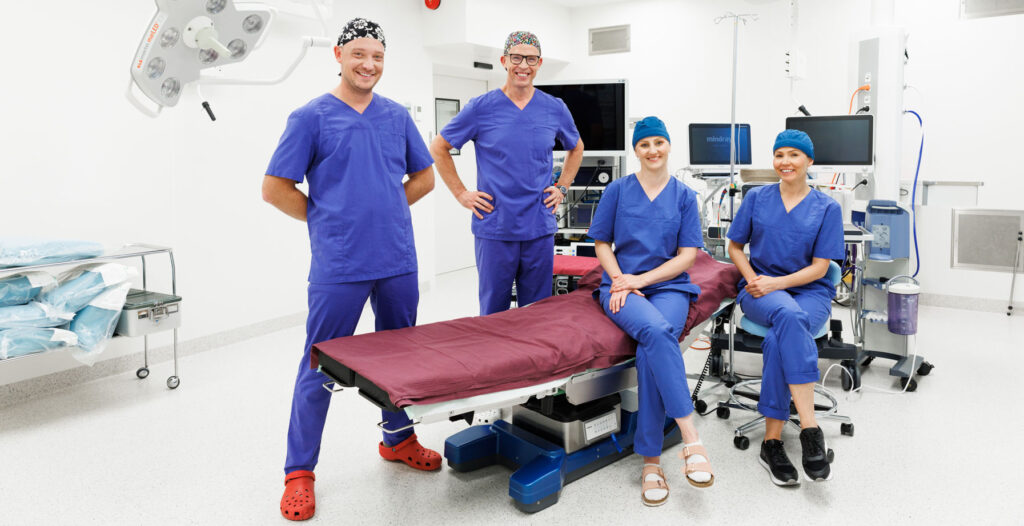A hernia is defined as protrusion of internal organs (such as part of the intestine) through a weak spot or a defect in the abdominal muscles. Such a defect of the abdominal wall usually occurs in the inguinal canal or navel, also after abdominal surgeries, when the wound is incompletely healed.
Hernia typically appears as a lump or swelling, which can disappear when lying down. A hernia is often accompanied by pain, especially during physical exertion, coughing or sneezing. Inguinal and umbilical hernias are the most common types of hernias.
Risk factors for hernia are:
- connective tissue weakness,
- demanding physical work,
- obesity,
- chronic cough,
- constipation.
The diagnosis of the hernia is usually made through physical examination, sometimes ultrasound is needed for confirmation. If there are no contraindications, the hernia is treated surgically. In modern hernia surgery, a mesh is almost always used to strengthen the abdominal wall, which ensures faster healing and good long-term results.
Amsel Clinic recommends and uses the laparoscopic or minimally invasive surgery methods. Its biggest advantages compared to traditional open surgery are reduced postoperative pain levels and faster recovery. When laparoscopic surgery is not possible, open hernioplasty is an alternative. Wounds are closed with absorbable intradermal sutures to ensure the best cosmetic result. After groin and umbilical hernia repair, patients are able to go home on the day of surgery. In the case of surgical treatment of large hernias usually 1-2 nights in the hospital are sufficient. Recovery depends on the extent of the operation, but generally does not take more than 1-3 weeks.
Frequently Asked Questions
A hernia definitely needs surgical treatment if it causes symptoms such as pain or incarceration. For hernias without complaints, we recommend surgical treatment for physically active patients in good general condition.
No, surgical treatment is the only possible way to remove a hernia.
The main advantages of laparoscopic or minimally invasive surgery are fewer wound complications, smaller scars, less postoperative pain and significantly faster postoperative recovery. Long-term results are no different compared to open surgery.
